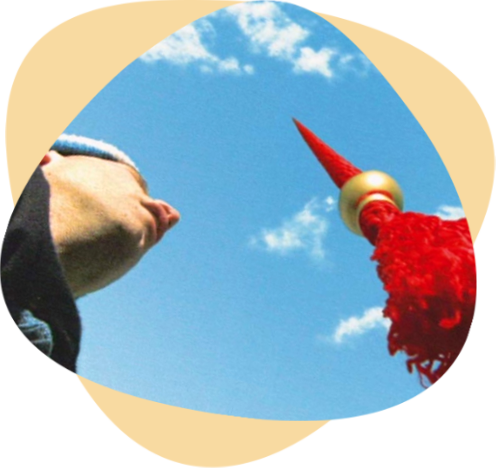What do we talk about when we talk about film?
Here we look at a short film called Dangle.
Our focus will be on the teachers conversation with a group of 7 year old children about the film.

Here we look at a short film called Dangle.
Our focus will be on the teachers conversation with a group of 7 year old children about the film.

The clip will raise some interesting questions about the ways in which adults (teachers, but also parents and other carers) talk and listen to children and young people. In most social situations with children, or students, or learners, it is the adults who ask the questions. (In the next Step we will look at how to empower learners to ask questions). So the types of questions, and how they are framed, is very important. Questions can be open or closed, or have a specific focus (on a technique, fact, or concept), or they can ask for emotional responses (‘did you like this film?’ etc). Carefully thought through questions can ‘extend and lift’ children’s thinking, scaffolding their learning.
Watch the film below and think about the focus that the teacher is taking. Is she asking the children to focus in particular ways? Is she requiring them to develop ideas, or repeat obvious facts? Do her questions ‘extend and lift’?
For an additional perspective on questioning children’s film viewing, look at the three pdfs of ‘Tell Me’ questions in the downloads below. They are adapted from a framework called Tell Me by British educator Aidan Chambers, who wrote a set of questions to ask children about the books they were reading.
Think about the ways in which you ask questions when you are introducing film to a group of learners. Do any of the ideas in this step help you develop the way you do it?
Here is a link to the original film Dangle, together with an interview with the director, explaining how he made it.
Write your thoughts on all the questions in the notepad below.
Save to notepadUse this notepad feature to write down answers and your thoughts to questions posed throughout this resource.
Open Notepad